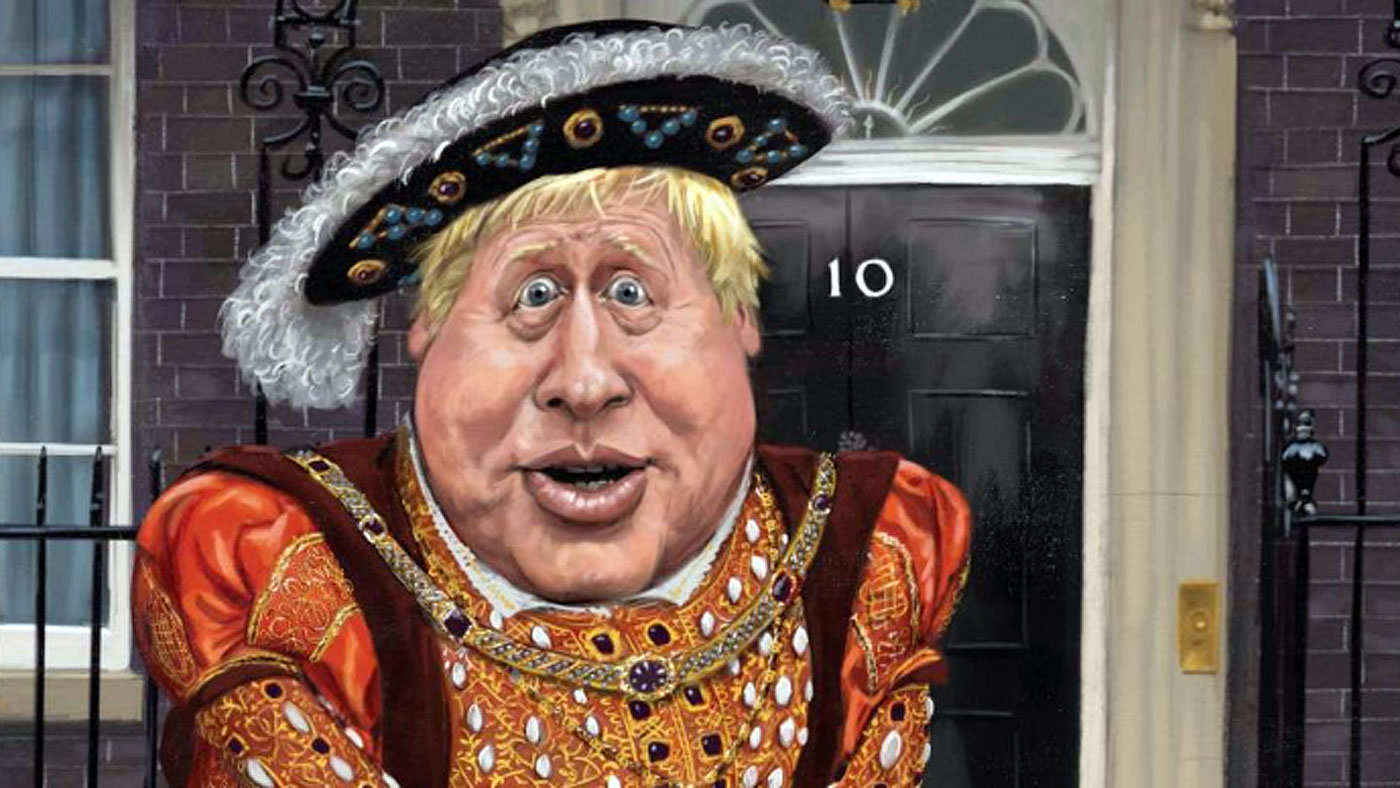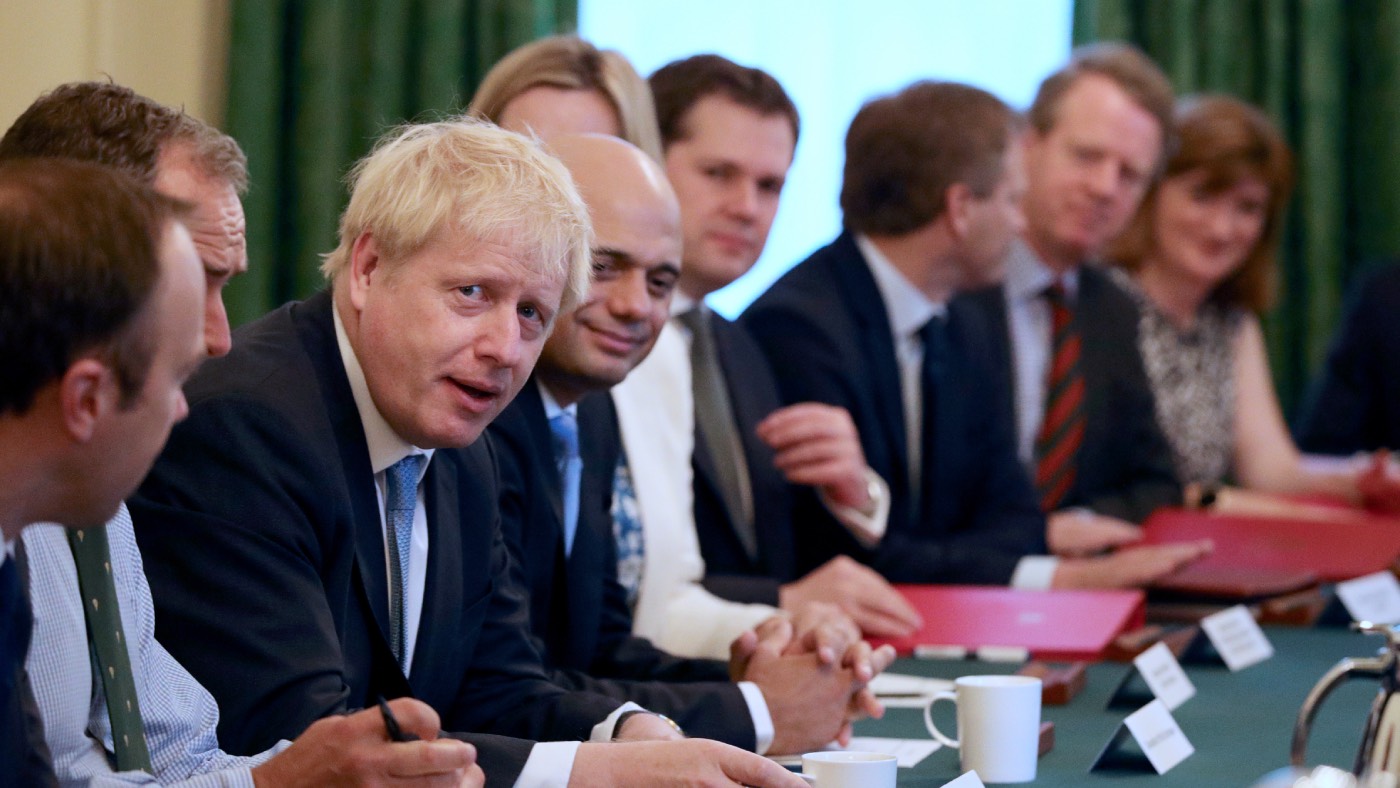Countdown to Brexit: dealing with no deal

A free daily email with the biggest news stories of the day – and the best features from TheWeek.com
You are now subscribed
Your newsletter sign-up was successful
After last week’s email on the looming parliamentary battle, today’s examines what the argument is about: a potential no-deal Brexit. Click here to receive a similar weekly briefing every Friday

THE WEEK IN ONE MINUTE
With 76 days to go:
The Week
Escape your echo chamber. Get the facts behind the news, plus analysis from multiple perspectives.

Sign up for The Week's Free Newsletters
From our morning news briefing to a weekly Good News Newsletter, get the best of The Week delivered directly to your inbox.
From our morning news briefing to a weekly Good News Newsletter, get the best of The Week delivered directly to your inbox.
- Donald Trump’s national security adviser John Bolton said the UK would be first in line for a trade deal after Brexit.
- Wage growth reached an 11-year high of 3.9%, which was partially offset by an unexpected rise in inflation, to 2.1%.
- A leaked email and spending announcements for policing and prisons added to speculation about an imminent election.
- Lib Dems leader Jo Swinson said she would work with Labour to avoid a no-deal Brexit, but added that she thinks a Corbyn-led unity government would not win MPs’ confidence.
What mattered most... and least
Who wants a no-deal Brexit, and whether or not they said they wanted it in June 2016, may turn out to be highly important. Officially, Boris Johnson is not in favour. He says he wants to leave the EU with a revised deal (but will leave without one on 31 October if none is forthcoming).
Dominic Raab said this week that this was always the position of Brexiteers, even before the referendum. But Philip Hammond, the former chancellor, characterised his claim as “a total travesty of the truth”. No deal was “a far cry from the highly optimistic vision presented by the Leave campaign”, hetweeted, “and there is no mandate for it”.
Raab did make one reference to no deal as a highly unlikely “worst-case scenario” on 2 March 2016. However, said the BBC, “after days looking through the archives, we have not been able to find any other clear examples of Mr Raab talking about the possibility of a no-deal exit before the referendum”.
A free daily email with the biggest news stories of the day – and the best features from TheWeek.com
On the other hand… if Johnson strikes a deal, or if no deal is a damp squib rather than a disaster, the argument outlined above may seem entirely academic.

THE BIG QUESTION

Would we be ready?
Boris Johnson insists business “will be ready” by the Brexit deadline, despite industry warnings that thousands of firms have not submitted the paperwork needed to continue trading with the bloc following a no-deal withdrawal.Speaking on BBC Radio 4’s Today programme last month, CBI deputy director Josh Hardie compared the process of preparing for no-deal to damage limitation. “If you see a storm coming, you put down the sandbags,” he said. “It doesn’t mean you’re going to stop all the flood water. You’ll probably still lose the kitchen but you might save the bedroom - and that’s where we are right now.” According to The Times, the CBI report marked a “significant shift in tone”, showing that business leaders were “ready to face up” to the reality of a no-deal Brexit.
IN FULL: Read The Week’s briefing

NEOLOGISM OF THE WEEK
‘Meatloaf Remainerism’
The term applied by John Rentoul, The Independent’s chief political commentator, to the tendency for Jeremy Corbyn and the Lib Dems to say they will “do anything to stop no-deal, but they won’t do anything that would actually work, such as (a) voting for a deal, or (b) uniting behind a single candidate for temporary PM”.

RECAP OF THE WEEK
Pros and cons of no deal
Last month, Philip Hammond and Jacob Rees-Mogg presented strikingly different visions of Britain after a no-deal Brexit. Since then, Hammond has lost a cabinet job and Rees-Mogg has gained one, but the pros and cons outlined in this briefing are unchanged.

FROM THE MAGAZINE
A disunited kingdom
Boris Johnson professes to love the United Kingdom, said The Independent. He extols “the awesome foursome” and speaks of the UK as “the most successful economic and political union in history”. But how can that be squared with his readiness to countenance a no-deal Brexit? The very idea is anathema to the Scots who opposed quitting the EU in the first place: 62% voted Remain in the 2016 referendum. And if Scots are given a second chance to vote on independence, they might well now choose to sever their 300-year-old ties with their neighbour to the south.
It doesn’t help that Johnson is at loggerheads with his party’s best-loved figure in Scotland, said Chris Deerin in the New Statesman. “Charismatic, funny, outspoken, smart and brave”, Ruth Davidson, leader of the Scottish Tories (pictured above, opposing Johnson during a 2016 debate), has turned around her local party’s fortunes. But Davidson, a convinced Remainer, is no fan of the new PM: in the leadership election she voted for three other candidates – anyone but Boris.
It’s not just the pursuit of a no-deal Brexit that makes Johnson unpopular with Scots, said Tom Devine in The Guardian. “Foppish, rich, incompetent, xenophobic,” he is for many the embodiment of the archetypal right-wing English Tory, a figure utterly out of sympathy with their “social democratic” attitudes. Even before Johnson moved into No.10, the polls were suggesting that almost 50% of Scottish voters backed the independence cause. With him in power, there may now be an absolute majority.
SUBSCRIPTION OFFER: Get six issues of The Week magazine for £6

IN DEPTH
The economic consequences
European Union leaders now believe that Britain crashing out of the bloc without a deal on 31 October is the most likely Brexit scenario. Last week, a senior EU diplomat quoted by The Daily Telegraph and The Guardian said Brussels is operating on a “working hypothesis of no-deal”.Many senior Leave supporters think that no deal “would be perfectly acceptable as long as sufficient preparations have been made”, according to the BBC’s Chris Morris. Backbench Brexiteers have sought to present a so-called “cliff edge” Brexit as an opportunity rather than a threat, and have dismissed claims to the contrary as Remainer scaremongering. Their opponents argue that leaving without an agreement would have disastrous consequences for businesses, create chaos at the borders, drive up food prices and lead to a shortage of essential goods. IN FULL: Read The Week's no-deal fact check

INFOGRAPHIC OF THE WEEK
Anyone struggling to visualise cross-border European trade patterns will welcome The Guardian’s latest Brexit infographic, which maps the flow of various foodstuffs across the continent. While away an afternoon working out whether we spend more on Latvian cheese or Maltese wine.

JARGON-BUSTER
Operation Kingfisher
The existence of Operation Kingfisher - a government plan to assist businesses hurt by a no-deal Brexit - was revealed on Saturday in The Times. It said ministers had “drawn up a secret list of big British employers that are considered most at risk, with the worst affected expected to be in the construction and manufacturing sectors”. Michael Gove later said contingencies would be put in place so that “any businesses that may be temporarily affected by changes of circumstances that are related to Brexit can be supported, so that fundamentally viable businesses that may have the occasional cash flow or other issue can be supported”. Other businesses, he added, “will see opportunities, both in the run up to, and immediately after, October 31”.

WHAT ARE THE ODDS?
From most to least likely…
Some form of Brexit this year: 8/11 (58%)General election this year: 6/5 (45%)No-deal Brexit: 7/5 (42%)Article 50 revoked: 14/5 (26%)Jeremy Corbyn is the next PM: 3/1 (25%)Sir Keir Starmer is the next PM: 14/1 (7%)Nigel Farage is the next PM: 16/1 (6%)
From Oddschecker

BREXITOMETER
After the past seven days, does Brexit look more or less likely?
No change. The pro- and anti-no dealers are circling each other in Whitehall, on social media and in newspaper opinion pages. Until they can test each other’s strength in parliament, neither side is likely to make much progress.

SUBSCRIBE
Are you seeing the full story?
Get straight to the point in 2019. The Week magazine delivers quality coverage from more than 200 local and global sources each week directly to your door. Find out more
-
 What is the endgame in the DHS shutdown?
What is the endgame in the DHS shutdown?Today’s Big Question Democrats want to rein in ICE’s immigration crackdown
-
 ‘Poor time management isn’t just an inconvenience’
‘Poor time management isn’t just an inconvenience’Instant Opinion Opinion, comment and editorials of the day
-
 Bad Bunny’s Super Bowl: A win for unity
Bad Bunny’s Super Bowl: A win for unityFeature The global superstar's halftime show was a celebration for everyone to enjoy
-
 How corrupt is the UK?
How corrupt is the UK?The Explainer Decline in standards ‘risks becoming a defining feature of our political culture’ as Britain falls to lowest ever score on global index
-
 The high street: Britain’s next political battleground?
The high street: Britain’s next political battleground?In the Spotlight Mass closure of shops and influx of organised crime are fuelling voter anger, and offer an opening for Reform UK
-
 Biggest political break-ups and make-ups of 2025
Biggest political break-ups and make-ups of 2025The Explainer From Trump and Musk to the UK and the EU, Christmas wouldn’t be Christmas without a round-up of the year’s relationship drama
-
 ‘The menu’s other highlights smack of the surreal’
‘The menu’s other highlights smack of the surreal’Instant Opinion Opinion, comment and editorials of the day
-
 Is a Reform-Tory pact becoming more likely?
Is a Reform-Tory pact becoming more likely?Today’s Big Question Nigel Farage’s party is ahead in the polls but still falls well short of a Commons majority, while Conservatives are still losing MPs to Reform
-
 Asylum hotels: everything you need to know
Asylum hotels: everything you need to knowThe Explainer Using hotels to house asylum seekers has proved extremely unpopular. Why, and what can the government do about it?
-
 Taking the low road: why the SNP is still standing strong
Taking the low road: why the SNP is still standing strongTalking Point Party is on track for a fifth consecutive victory in May’s Holyrood election, despite controversies and plummeting support
-
 Is Britain turning into ‘Trump’s America’?
Is Britain turning into ‘Trump’s America’?Today’s Big Question Direction of UK politics reflects influence and funding from across the pond